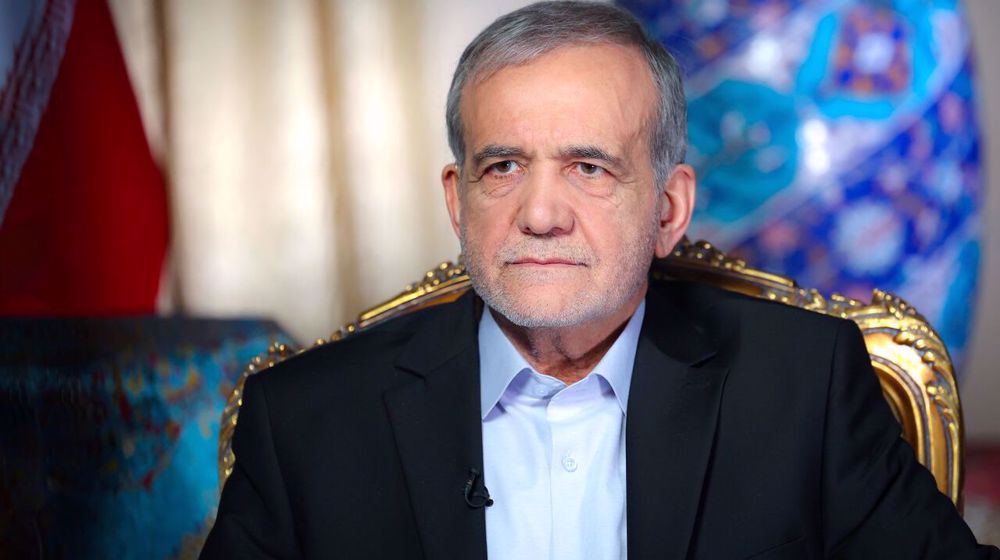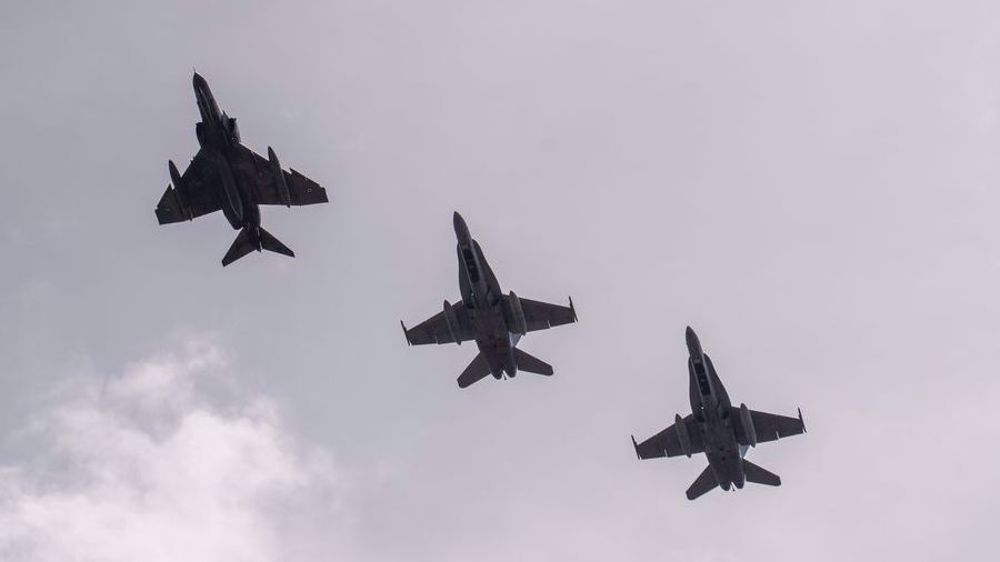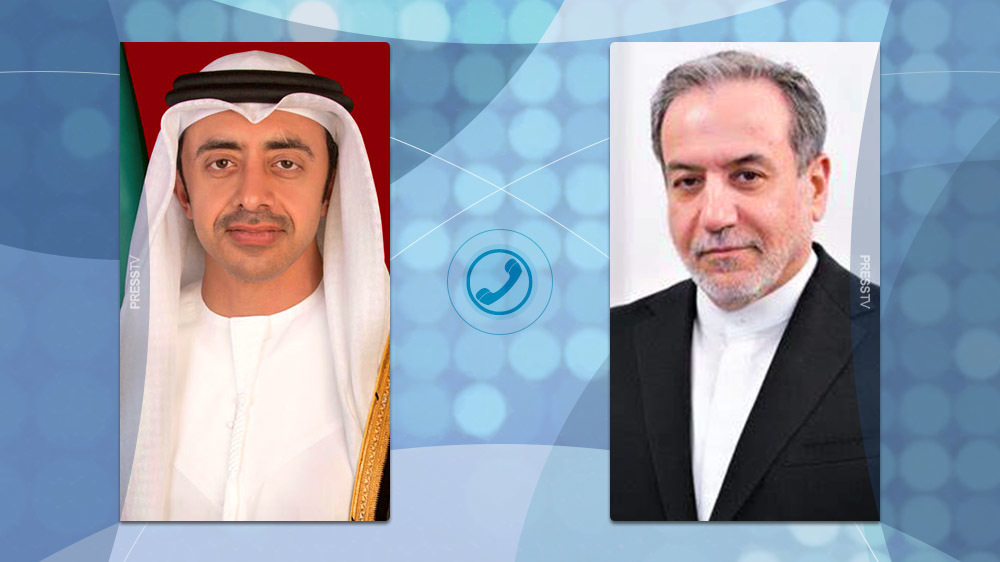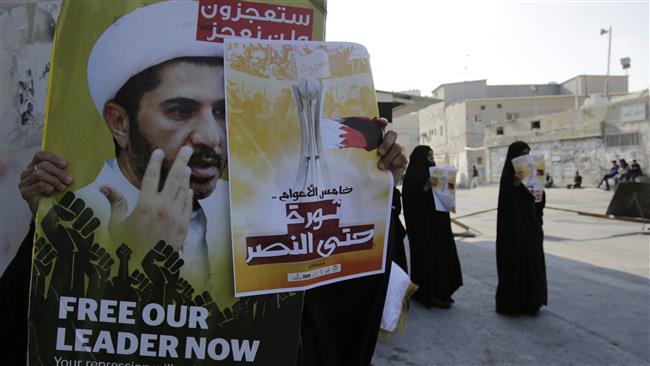Bahrainis continue daily protests ahead of 7th uprising anniversary
Bahrain continues to be the scene of anti-regime protests on an almost daily basis, as people in the Persian Gulf kingdom gear up to mark the seventh anniversary of their uprising on February 14.
Although the rallies against the Al Khalifah dynasty, which started in mid-February 2011, are in the form of peaceful pro-democracy protests, the regime has utilized a constant heavy-handed crackdown against demonstrators.
In the small island of approximately 1.5 million citizens, the Shia majority population have long complained that they are discriminated against in employment and housing by the Al Khalifah regime.
In March 2011, the Bahraini regime asked Saudi Arabia and other Persian Gulf Arab countries to assist with the crackdown on the popular protests.
The Bahraini regime, backed by forces from Saudi Arabia, the United Arab Emirates and Pakistan, began a violent, deadly crackdown on protests, which has led to thousands of arrests, scores of deaths, and systematic torture of detainees.
Crackdown intensifies
Since the start of the popular protests, the Manama regime has dissolved key opposition factions, including al-Wefaq National Islamic Society and the National Democratic Action Society (Wa’ad), arrested prominent opposition figures and rights activists and conducted mass trials of civilians at military courts.

Rights activists have lashed out at Manama for the rampant torture and sexual abuse of political prisoners as well as numerous death sentences, lengthy jail terms, revocation of citizenships, enforced deportations and hefty financial penalties against political activists and Shia scholars in the country.
Critics of the Bahraini regime say defendants in the mass trials, all Shia Muslims, are victims of torture and denied access to any legal representation during the investigation period.
In March 5, 2017, Bahrain’s parliament approved the trial of civilians at military tribunals in a measure blasted by human rights campaigners as being tantamount to imposition of an undeclared martial law countrywide.
Bahraini monarch King Hamad bin Isa Al Khalifah ratified the constitutional amendment a month later.
Human Rights Watch says the Manama regime authorities have stripped 105 persons of Bahraini citizenship since October 2017, effectively placed more than 20 rights activists, lawyers, and political opposition figures under a travel ban, ordered the closure of the country’s only independent newspaper al-Wasat, and upheld a two-year prison sentence against distinguished human rights activist Nabeel Rajab over TV interviews between 2015 and 2016.
According to the latest report by the Sweden-based human rights NGO, SALAM for Democracy and Human Rights (SALAM DHR), Bahraini security authorities have arbitrarily arrested 89 Shia clerics and summoned 156 others over their political views since 2011.
The report, titled “Kingdom of Persecution,” noted that the sentences against the Shia scholars included three death sentences, eight life terms, 19 citizenship revocations, including that of Bahrain’s most prominent cleric Sheikh Isa Qassim.
Human Rights Watch and Amnesty International have repeatedly expressed deep concern over deterioration of human rights in Bahrain, saying the situation reveals the regime’s campaign to silence voices of dissent in the sheikhdom.

Highlights of Bahraini regime's crackdown on dissent
- Bahrain, as a member of the [Persian] Gulf Cooperation Council (GCC), is the first member state of the council to have ever used foreign troops from the GCC’s Peninsula Shield Force to launch unprecedented crackdown on its own people.
- Just three days after the commencement of the popular uprising, the Bahraini regime declared a state of emergency across the island country and attacked protesters, who had gathered at the Lulu (Pearl) Roundabout in capital Manama, killing and wounding a number of demonstrators.
- The Bahraini authorities, in line with a widespread clampdown, arrested Nabeel Rajab, a prominent activist, on charges of insulting the Sunni Muslims of the country and sentenced him to two years in prison.
- More than 10 women are currently behind bars in Al Khalifah regime’s detention centers for political reasons.
- According to the Bahrain Center for Human Rights, 500 Bahraini political prisoners have been in jail since November 22, 2011, making the tiny Persian Gulf country ranking the first in this regard in the world.
- In January last year, Manama authorities executed three protesters and six more have been sentenced to death recently, all tried by military courts.
- Bahrain’s Shia majority has been suffering from systematic discrimination since 18th century, and Shias cannot hold key political and military posts.
- Bahrain’s authorities have so far summoned 156 Shia clerics for making speeches and offering ideological and political perspectives, of whom 89 have been detained.
- Bahraini courts have targeted 50 clerics, who have been either sentenced to death or life imprisonment, have their citizenship revoked, or been forced to pay heavy fines.
- Bahraini regime has so far sentenced three clerics to death and revoked citizenship of 19 other. Three of these clerics are among the country’s senior religious authorities, such as Sheikh Isa Qassim, Sheikh Mohammad Sanad and Sheikh Hossein Najati, whose citizenships have been revoked.
- Bahrain's jailed opposition leader, Sheikh Ali Salman, the leader of the country's now-dissolved al-Wefaq National Islamic Society, was arrested on December 28, 2014, and after a number of trials, was sentenced to four years in prison. His society is considered as the biggest opposition group in the island country.
US, UK silence
Meanwhile, not only have the US and UK governments kept silence over Manama’s crackdown on dissent, they have also continued their colossal arms sales to the Arab monarchy despite massive rights concerns.
Bahrain is home to the US Fifth Fleet. The Persian Gulf country concluded a $3.8-billion deal with a US aerospace and military equipment giant to purchase 16 upgraded F-16 warplanes on October 17, 2017. US President Donald Trump has eased restrictions on arms sales to certain countries, including Bahrain.

The US State Department removed human rights conditions on the sale of F-16 aircraft to Bahrain, after Trump announced in May 2017 that Washington’s relations with Manama were set to improve. The announcement came after Trump met the Bahraini King during a visit to Saudi Arabia.
The UK government has also been under fire domestically and by international rights activists over violation of its own laws by selling arms to Bahrain.
Under British law, London cannot export weapons to countries that will use them in violation of international humanitarian law.
According to data from the Stockholm international Peace Research Institute, Britain sold at least $85 million worth of arms to Bahrain between 2000 and 2016.
Rights groups contend that American and British leaders are ignoring the massive rights violations in Bahrain because the sheikhdom is an export market for their weapons.

Pezeshkian: Iran seeks stronger ties with neighboring countries

Qatar joins Israel for 'side by side training' in aerial drills in Greece

Iran, UAE voice alarm at fatal Israeli, American aggression against Gaza, Yemen
VIDEO | Footage reveals aid workers killed in Gaza under Israeli fire, debunking regime’s claims
Autopsy finds teenage Palestinian died of starvation in Israeli prison
Year of Investment in Production in Iran
Israel’s brutality in Gaza ‘surpasses all recent forms of terrorism’: Rights group
VIDEO | Press TV's News Headlines
Myanmar quake death toll passes 3,300: State media
US spent $1 billion on Yemen offensive with limited results: Report
Microsoft employees disrupt 50th anniversary event over AI-assisted Gaza genocide










 This makes it easy to access the Press TV website
This makes it easy to access the Press TV website